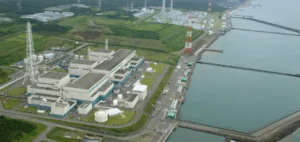The meeting of the 11th US-EU Energy Council, a key platform for coordinating energy issues, brought together high-level representatives on March 15. Chaired by figures such as Kurt Campbell, David Turk, Kadri Simson, and Bélen Martinez Carbonell, it highlighted the transatlantic cooperation essential for diverse and resilient energy systems.
Commitments and energy security
During the meeting, the importance of the EU-US Task Force on Energy Security was underlined, with a commitment to continue efforts to guarantee energy security in Europe and beyond. The Council expressed its support for global decarbonization objectives, in line with theParis Agreement. The call for revised Nationally Determined Contributions, aimed at reducing emissions to limit warming to 1.5 degrees Celsius, was reiterated. This approach is part of a global effort to promote fair energy transitions aligned with scientific objectives.
Towards a fair and orderly transition
The Council stressed the need for an equitable global transition away from fossil fuels, to achieve net zero by 2050. The next decade is described as crucial for this transition, with particular urgency on the phasing out of uncompensated coal. It was noted that diversified and resilient energy systems are essential to reduce dependencies and counter attempts to politicize energy. This point underlines the importance of not being overly dependent on a single supplier for fuels, essential raw materials and other inputs.
Nuclear power in the energy transition
The potential contribution of nuclear energy to the decarbonization of energy systems was recognized, with a particular focus on reducing dependence on Russia for nuclear materials and services. The USA and the EU have expressed their intention to strengthen cooperation in this area. This cooperation also aims to support the efforts of affected EU member states to diversify their nuclear supplies. The importance of this approach lies in its contribution to a safe and sustainable energy transition.
Continued support for Ukraine
The situation at the Zaporijjia nuclear power plant in Ukraine was strongly condemned, with reaffirmed support for the principles of nuclear safety and security. The Council reiterated its support for the principles set out by the IAEA Director General at the UN, and for the assistance provided to Ukraine. This position reflects transatlantic solidarity and commitment to nuclear safety under conditions of conflict. Transatlantic energy cooperation thus extends to concrete support for Ukraine, underlining the interconnection between energy security, nuclear safety and geopolitical stability.
The 11th US-EU Energy Council marked an important step towards strengthening cooperation for a global energy transition, underlining the importance of innovation, energy security, and support for Ukraine in the face of current challenges.






















